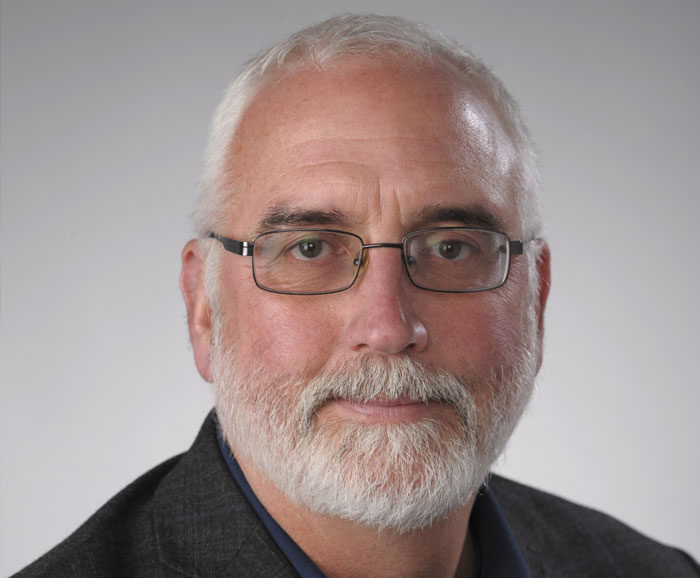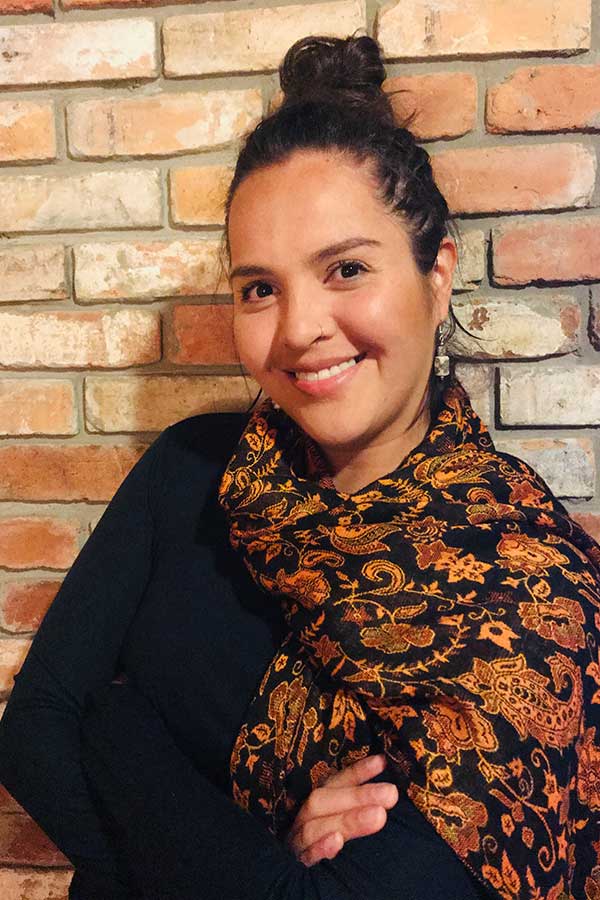Falk College strives to achieve excellence in education not only through good teaching but also through participation in active research. Our students benefit by learning from researchers who are working at the cutting-edge of knowledge, within well-equipped laboratories, and in projects that are both domestic and abroad. We encourage both undergraduates and graduate engagement to achieve not only a rewarding educational experience but also enhanced career opportunities upon graduation. Learn more about the different types of research awards.

Extramural AwardHow FSA CRP Program Managers Incorporate Science, Feasibility, and Acceptability in Guidelines for Conserving Grass and Breeding Birds on CRP Land
A recent legal settlement (NWF v. Veneman, Civil No. 04-2169) requires assessing and revising guidelines for permitted haying and grazing relative to the primary nesting season (PNS) of Breeding Grassland Birds (BGB) on USDA’s Conservation Reserve Program (CRP) enrolled lands.
Learn more about this research.

Extramural AwardCoast to Cow to Consumer
Optimizing agricultural productivity to sustainably meet rising global food demands requires innovative agricultural methods. Up to 12% of dietary gross energy may be lost through enteric methane (CH4) production, limiting cattle performance. . .
Learn more about this research.

Extramural AwardFeeding Seaweed to Advance the Sustainability of Organic Dairy and Aquaculture Systems
Organic dairy is faced with oversupply and fluctuating prices that threaten long-term financial viability. Identifying and adopting management strategies that improve production efficiency are critical to the industry.
Learn more about this research.

2022-2023 Falk Tenure-Track Assistant Professor Seed Grant AwardLocal Agroecological Knowledge and Farmers’ Responses to Global Environmental Change in Small-scale Urban Farms and Community Gardens of Central New York
Efforts to conserve biodiversity, adapt to climate change, and address food sovereignty are critical for the survival of small farms in rural and urban areas of Central New York. This research focuses on the challenges of rural and urban small-scale farmers and community gardeners in the face of global environmental change, and their adaptation strategies.
Learn more about this research.

2018-2019 SU CUSE GrantEvaluating the Role of Sustainable Farming Practices in Promoting Food Security While Protecting Endangered Species in the Galapagos Archipelago
The Galapagos ecosystem is a strong draw for international ecotourism. Human activity, however, often leads to profound changes in the relationships and structures of biophysical systems that are detrimental to both human and non-human species. The confluence of changing land use patterns and the introduction of a devastating avian parasite into the Galapagos Islands has set the stage for the decline of several species of Darwin’s finch, a centerpiece of Galapagos tourism.
Learn more about this research.

2018-2019 SU CUSE GrantFurther Evidence for the Negative Consequences of Mosquito Net Fishing
Hundreds of millions of insecticide-treated mosquito nets have been distributed throughout sub-Saharan Africa for the control of malaria. While successful in controlling malaria, these nets also make excellent fishing nets. Our previous research suggests that the practice of mosquito net fishing is ubiquitous and devastating to the fisheries of the floodplain of the upper Zambezi in Western Province, Zambia. We hypothesize that the current paradigm of mass distribution of insecticide-treated mosquito nets threatens economic and food security as well as malaria control.
Learn more about this research.

Extramural AwardResource Recovery at Small Farms using Anaerobic Digestion: A Viable Technology Education and Outreach Effort
Despite a significant number of animals on smaller dairy farms in New York State and the northeastern United States, the vast majority of research on the benefits of anaerobic digester (AD) technologies only relates to larger livestock farms. That is about to change thanks to a research award made by the U.S. Department of Agriculture’s National Institute of Food and Agriculture (NIFA) for the project, “Resource Recovery at Small Farms using Anaerobic Digestion: A Viable Technology Education and Outreach Effort.” Falk Family Endowed Professor of Food Studies and project co-investigator, Rick Welsh, will lead evaluation and assessment efforts that could help develop and extend appropriate AD technology for smaller livestock farms, especially dairy farms, to realize the substantial environmental benefits from greenhouse gas emission reductions, economic benefits from energy production, and health benefits from reducing pathogen loads on farm. Welsh is partnering with two environmental engineers from Clarkson University- Drs. Stefan Grimberg and Shane Rogers.
Learn more about this research.

Extramural AwardFalk professor to study anaerobic digesters for small-scale dairy farms
Falk College professor of Food Studies, Rick Welsh, and Stefan Grimberg and Shane Rogers, two environmental engineers from Clarkson University, have received a competitive grant from the U.S. Department of Agriculture’s National Institute for Food and Agriculture to develop educational and outreach materials related to smaller-scale anaerobic digesters. In the U.S., anaerobic digesters have been seen as larger farm technologies since the more manure produced on a farm, the greater the amount of biogas produced too. This biogas is captured and burned to produce heat that can be used to keep parlors warm or to produce steam to turn a turbine and produce electricity. Excess electricity can be sold. Earlier research by Welsh and colleagues found widespread interest among smaller-scale dairy farmers in New York State for digester technology. And digesters are smaller-farm technologies in many nations around the world including Asia and Central America.
Learn more about this research.

Extramural AwardWorking toward wetland restoration
In the St. Lawrence River watershed in northern New York, two creatures struggle to hang on in the complex ecosystem of restored wetlands. The Blanding’s turtle and the golden-winged warbler can thrive in the shallow pools of water and adjacent dense shrubby vegetation typical of the swampy marshes. The recovery of these two specific species is an important indicator for an interdisciplinary team of researchers, including two from Syracuse University, assessing the viability of public-private partnerships to restore wetlands. Their work is providing answers to ensure conservation efforts that benefit both human and animal in this region—and possibly beyond.
Learn more about this research.
